Key Takeaways
Optimize your Airbnb listing for higher visibility, then unify all your channels with a reliable management tool to streamline leads.
Leverage referral networks and local partnerships to expand your audience cost-effectively.
Implement flexible payment options such as “Pay Part Now, Pay Later” to ease guest concern and boost conversions.
Bookings have slowed, competition has grown, and the pressure to fill calendars is higher than ever.
For Airbnb hosts managing a handful of properties, missing out on leads is a risk to stakeholder trust and long-term revenue. You need more than just another Airbnb marketing idea. You need predictable, repeatable lead generation tactics that actually move the needle.
This guide unpacks four proven Airbnb lead generation strategies designed for hosts that are determined to scale. Each approach targets a real-world challenge and offers a practical fix in terms of visibility, guest hesitation, channel overload, and limited reach.
Tactic #1: Optimize Listing Visibility
If a listing doesn’t appear in search results, the property might as well not exist.
Visibility directly affects Airbnb lead generation. For hosts managing multiple short-term rentals (STRs) across different markets, disappearing from search means fewer bookings and more pressure to explain underperformance to stakeholders.
Start with the title and skip vague descriptions. “Charming Getaway” says nothing useful. Instead, lead with specifics: “2BR Cabin with Hot Tub Near Yosemite” or “Pet-Friendly Loft, Walk to Downtown Austin.” Every word counts. In the listing description, highlight standout features like location, guest-favorite amenities, or seasonal perks.
Improve photos and descriptions
Photos do most of the heavy lifting.
Low-effort shots of furniture against blank walls won’t catch attention. Use high-resolution images that show real scenarios: breakfast set out on the patio, a suitcase near the entry, or a laptop on the workspace. Lighting should feel natural, not staged. Wide shots help guests understand layout, while close-ups give texture and warmth. When branding feels consistent across every listing, guests begin to trust the entire portfolio, not just one property.
Descriptions should match what the photos show. Avoid listing facts with no context. Instead of “balcony with seating,” try “balcony with two chairs and a skyline view, perfect for morning coffee.” Add seasonal keywords tied to local events. Mention the snow-covered trails in winter or the live music festival two blocks away in summer. Airbnb search favors listings that stay relevant. Updating descriptions based on the calendar keeps visibility high.
Utilize guest reviews properly
Guest reviews also influence search rank.
More 5-star reviews lead to better placement in Airbnb’s algorithm, though, reviews don’t appear automatically. They come from consistent, thoughtful hosting and well-timed follow-ups. A reminder sent just after checkout when satisfaction is fresh usually gets the best response.
Once good reviews roll in, use them. Pull strong guest quotes into the listing. A line like “Best sleep I’ve had in months, those blackout curtains work” carries more weight than anything a host could write. Social proof builds trust faster than any headline. High review volume signals reliability, which Airbnb rewards with better visibility. Every new review strengthens the listing’s position and makes it easier for the next guest to book without hesitation.
So automatic, you won’t know what to do with yourself
Put my rentals on autopilot
It’s simple to automate repetitive tasks with Uplisting's short-term rental software. You’ll save hours every week and eliminate human error. Go ahead — take some time off.
Tactic #2: Build Referral Partnerships
You don’t need a massive ad budget to get more bookings. You just need the right people talking about your properties. Referral partnerships bring in qualified leads through local connections and past guests who already trust your brand. Once set up, they quietly keep your calendar filled without constant effort.
Start with nearby businesses that already interact with travelers daily. Tour operators, wedding venues, bike rental shops, and yoga studios often work with guests looking for places to stay. A simple conversation can turn those local contacts into steady booking sources.
Offer clear incentives. A set commission, a free night after a few referrals, or a small bonus per guest can motivate partners to send travelers your way. Keep the system easy to use. QR-coded flyers, referral cards, or custom links make sharing fast and trackable. When the process is frictionless, people follow through.
Offer exclusive deals
Travelers respond to perks especially when they feel tailored. A 5% discount for referred guests or a complimentary late checkout adds just enough value to tip someone from browsing to booking. These small touches don’t eat into profit but leave a lasting impression.
Guests who refer others and come back themselves should feel appreciated. A bottle of wine, early access to high-demand dates, or a surprise welcome gift shows you notice their loyalty. When people feel seen, they talk. And that talk brings in more bookings.
Reward brand advocates
Some guests go out of their way to promote your place. They tag your property on social media, recommend it to friends, or write detailed reviews without being asked. Ignoring that effort is a missed opportunity.
Track referrals and show appreciation to top supporters. Offer a free stay, room upgrade, or even handwritten notes to thank those who go the extra mile. A little recognition goes far. Mentioning repeat referrers in your listing or a social post can spark even more enthusiasm from future guests.
Airbnb lead generation often starts with a simple recommendation. Instead of chasing cold leads, build partnerships with people already in your corner and make it easy for them to keep sending guests your way.

Tactic #3: Use Direct Marketing Channels
Not every booking starts with a search. Some of the most profitable guests come through direct contact: no middlemen, no platform fees, and no waiting. When you run multiple listings, direct channels give you more control over who books, when, and how often they return.
Start with social media. Travelers plan trips while scrolling; daydreaming between meetings, saving posts, sending links to friends. A consistent presence on Instagram or Facebook keeps your properties front and center without needing a big ad budget. Show real moments: a coffee setup on the balcony, the fire pit lit at sunset, a guest’s dog curled up on the sofa. Reels and short videos work well for showcasing upgrades or weekend availability. If a listing isn’t filling midweek, a targeted ad with a local hook like a farmers’ market or food festival can fix that fast.
Email still works as long as it’s worth opening. A generic newsletter won’t get far, but a short, thoughtful message with a clear reason to return will. Mention a recent update, include a photo from their last stay, or offer early access to upcoming dates. People book again when the message feels personal and timely.
Engage past guests
A guest who already stayed and left happy is your warmest lead. They know what to expect, they trust your space, and they’re more likely to come back if you remind them.
Send direct follow-ups: Thank them by name, reference the dates they stayed, and share a short update. A clear direct booking link makes it easy to reserve again without searching.
Share real updates: A new hot tub, updated patio furniture, or a local event like a music festival gives them a reason to come back.
Promote special packages
Standard listings start to blur together. Offers with clear themes or perks stand out and speed up booking decisions. Focus on what guests already want and shape your offers around those needs.
Bundle experiences: Work with local guides, chefs, or spas to offer weekend packages like a wine tasting followed by a private dinner. Guests love convenience, and you're adding value without adding work.
Create urgency: “Only two weekends left” or “Early bird discount ends Friday” are the kind of nudges that fill calendars quicker than price drops alone. Clear timelines push guests to act instead of saving the listing and forgetting about it.
Direct marketing doesn’t replace other channels, but it does give you more control (and more repeat bookings) without chasing cold leads.
Enjoy the confidence & focus you need to scale your vacation rental business
Book more while doing less
With a reliable VRM solution you can trust, Uplisting can help you grow your business without wasting time on double bookings, unhappy guests, upset clients and worrying what could go wrong next.
Tactic #4: Highlight Payment Flexibility
Cost hesitation can kill your bookings.
Guests don’t always need a discount. Sometimes they simply need some breathing room. “Pay Part Now, Pay Later” gives them that room. The Airbnb flexible payment guide lays out how travelers can secure a reservation without covering the full amount upfront. Hosts who mention partial payment directly in their listing copy stand out to guests scrolling with a budget in mind.
Most travelers won’t go hunting for payment details, so put the flexibility out in the open. A quick note like “Book now, pay the rest later” gives guests a reason to book today instead of stalling. When other listings demand full payment right away, the more relaxed option often wins even if the total price is the same.
Alleviate cost concerns
Travelers often plan trips while managing other expenses. Partial payments make your property feel more manageable without lowering the rate. Framing flexibility as a guest-friendly feature builds goodwill and encourages longer stays since the upfront cost feels lighter.
Multiple secure payment options like credit cards, PayPal, and Klarna also reduce friction. Guests get to choose what feels safest and most convenient. For last-minute bookings or international travelers, that kind of flexibility builds confidence. A fast, familiar checkout experience shows you’re running a professional operation, not just listing a space.
Reduce barriers to booking
When payment terms look simple, so should cancellation. A strict policy paired with flexible payment creates confusion and makes guests hesitate. Being upfront about cancellation terms keeps expectations clear and helps guests feel more in control of their decision.
Automated invoices and reminders keep everything moving. A quick heads-up when a balance is due or a confirmation when payment clears reduces inbox clutter and guest questions. For managers juggling multiple properties, those small automations remove friction for guests and for you. More clarity, fewer delays, and stronger Airbnb lead generation across the board.
Putting It All Together
Generating consistent Airbnb leads requires being strategic with every touchpoint.
From optimizing listings and leveraging local referrals to building direct relationships and offering flexible payment options, each tactic works together to increase bookings and guest trust. When applied consistently, these strategies reduce calendar gaps, improve guest experiences, and strengthen your brand across every property you manage.
For growing short-term rental operators, lead generation must be intentional, scalable, and automated wherever possible. The more you streamline your operations, the more time you’ll have to focus on what actually drives revenue: better guest communication, smarter pricing, and building a reputation that guests remember and return to.
Ready to turn more leads into confirmed bookings while simplifying your day-to-day operations? Sign up for Uplisting to streamline your vacation rental management.
All-in-one Vacation Rental Software and Channel Management System
Get started in seconds by connecting Airbnb
Manage short-term rentals & bookings, message guests, take payment, and so much more. All in one easy-to-use platform (that never double-books).
FAQs About Airbnb Lead Generation
Is cold calling effective for attracting new hosts?
Cold calling can work in specific markets especially where people still prefer a personal touch. Think rural vacation towns, close-knit communities, or places where face-to-face referrals still carry weight. A well-timed call might land a conversation, but it’s rarely the most efficient way to grow. Stronger results usually come from local partnerships and guest referrals, where trust already exists and conversations don’t start from scratch.
Do flexible payment options really increase bookings?
Yes, and they often work faster than lowering nightly rates. When guests don’t have to cover the full cost upfront, they’re more likely to follow through with a reservation. Partial payment options remove the hesitation that shows up right before checkout, especially for longer stays or high-demand weekends. Less financial pressure means more bookings from travelers who might’ve backed out otherwise.
Should I rely on direct bookings or stick to Airbnb only?
Sticking to Airbnb alone keeps operations simple—until something changes. A sudden policy shift, an algorithm update, or a suspended listing can throw off occupancy across multiple properties overnight. Adding direct booking channels gives more control and keeps revenue flowing even when platforms get unpredictable. The key is to route everything through one system so calendars stay synced, guests receive consistent communication, and no lead slips past unnoticed.




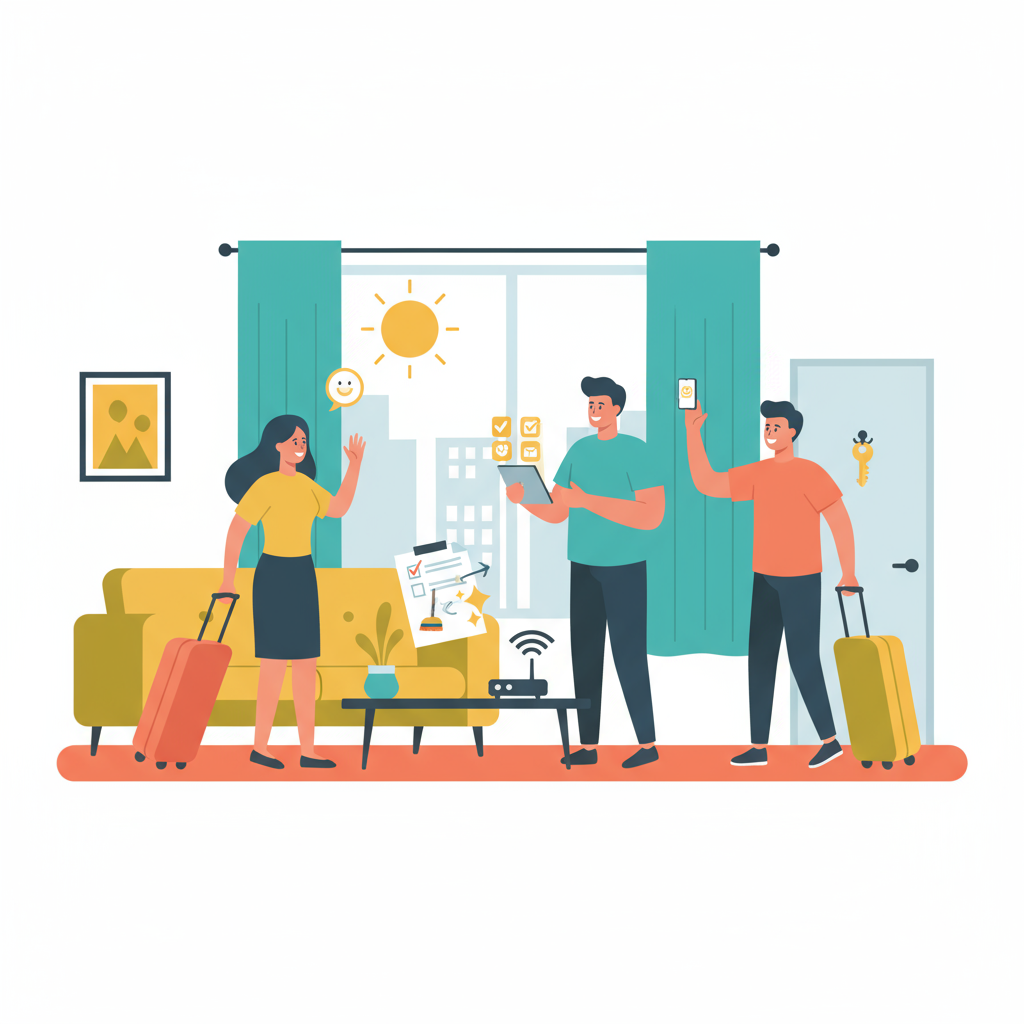
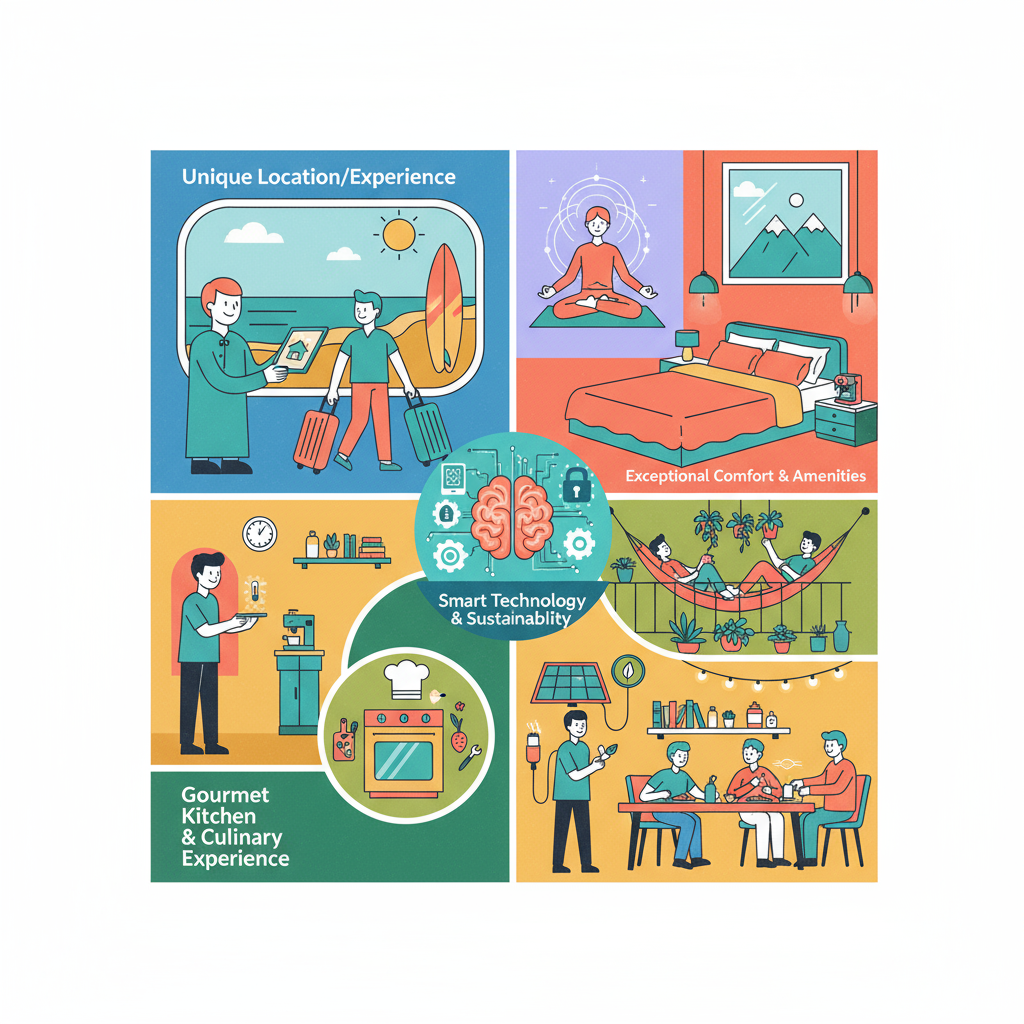





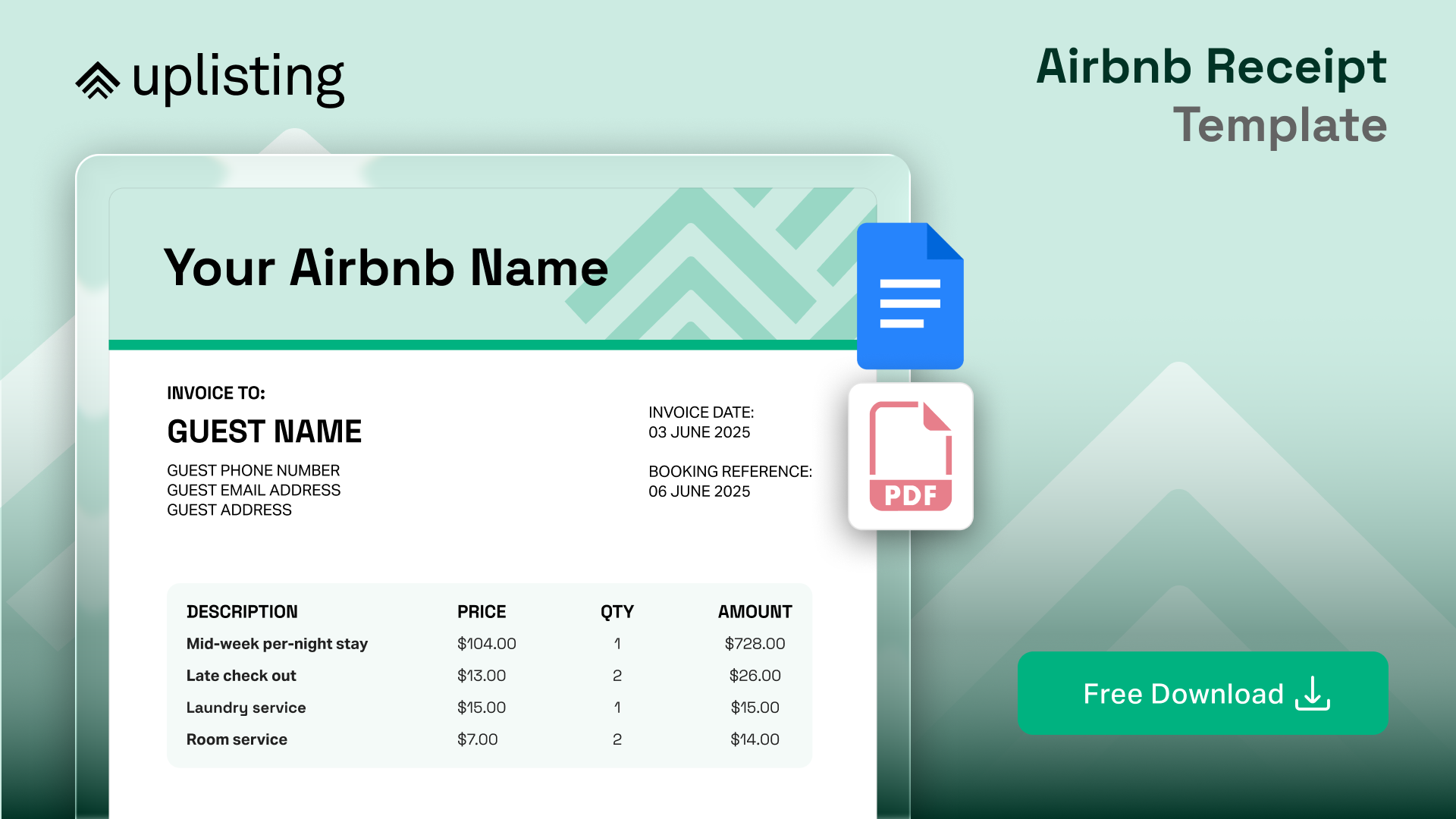

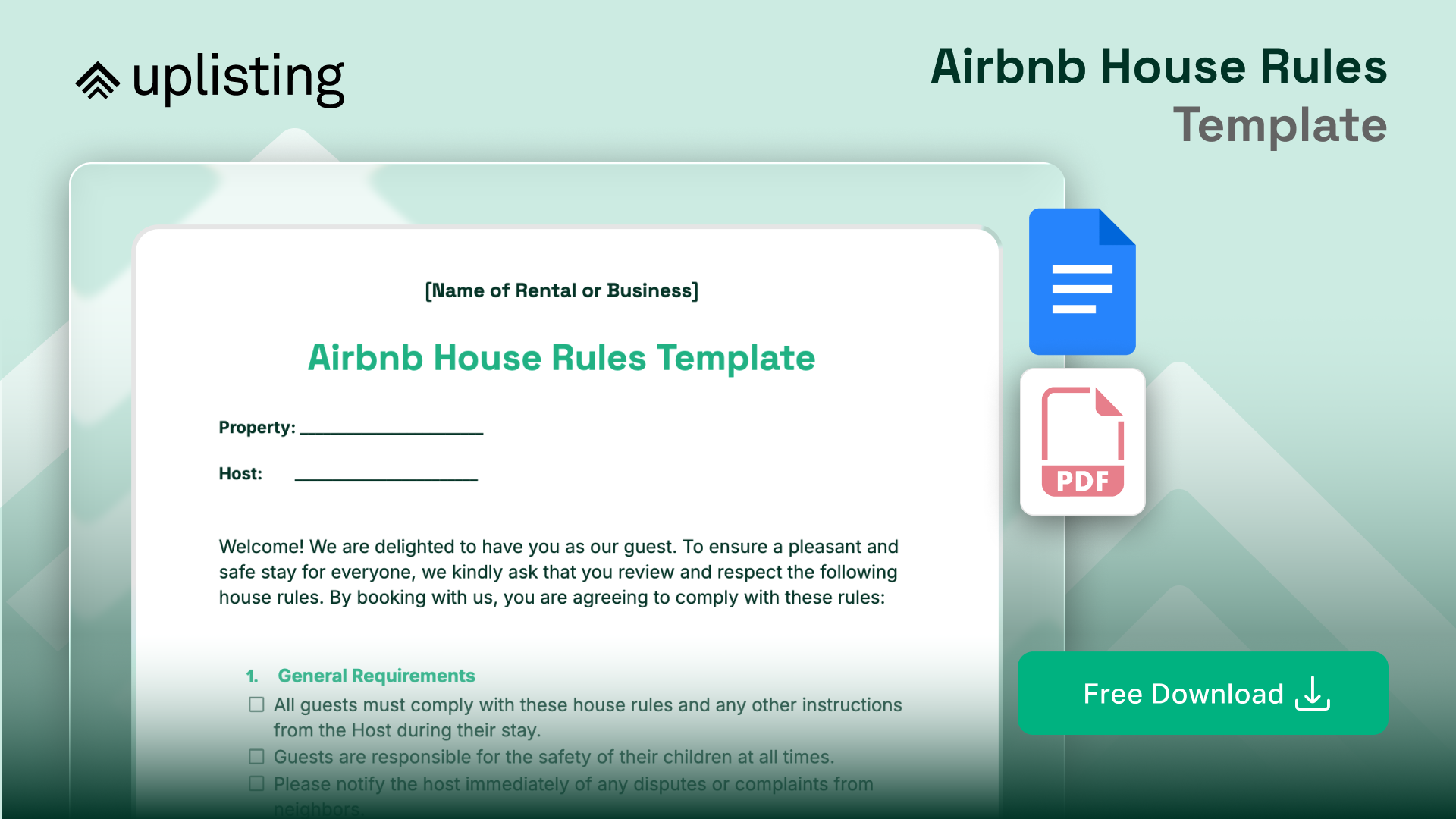

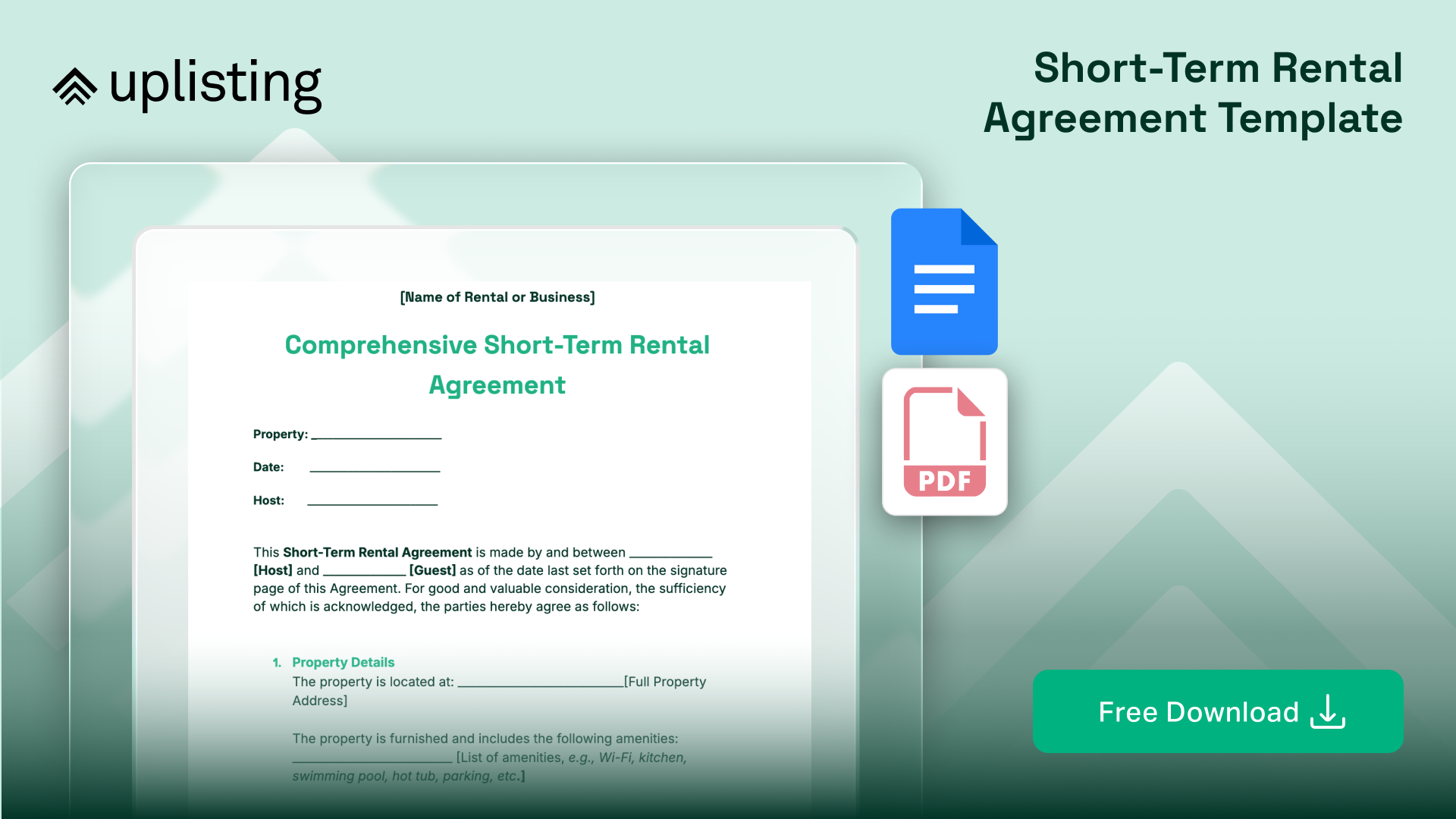


.png)

